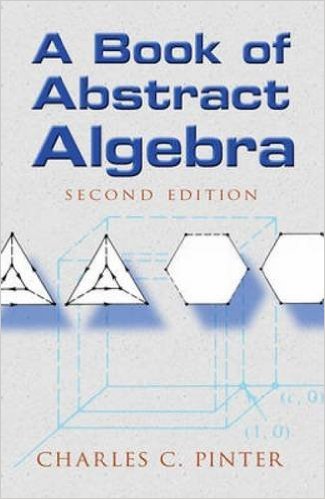Math 31
Topics in Algebra
General information
Instructor: Bjoern Muetzel
E-Mail: bjorn.mutzel-at-dartmouth.edu
Office: 318 Kemeny Hall
Office Hours: Mo 4-5:30 pm and Tu 2-3:30 pm
Lectures: MWF 2:10-3:15 pm in 004 Kemeny Hall
x-hour: Th 1:20-2:10 pm in 004 Kemeny Hall
During the x-hour I will be usually available in my office, but x-hours will be occasionally used for class work.
Textbook

Charles C. Pinter: A Book of Abstract Algebra, 2nd edition
Exams
There will be a midterm exam, a cumulative final exam and a small project. The exams are scheduled as follows:
| Midterm Exam I | Thursday, October 5 from 4:30-6:30 pm | KH 007 |
|---|---|---|
| Midterm Exam II | Thursday, October 26 from 4:30-6:30 pm | KH 007 |
| Solving the cube | Thursday, November 9 from 1:20-2:10 pm | KH 004 |
| Essay about the cube | due Thursday, November 16 at 4 pm | KH 318 |
| Final Exam | Sunday, November 19 from 11:30 - 2:30 pm | KH 007 |
If you have a conflict with the midterm exam because of a religious observance, scheduled extracurricular activity such as a game or performance [not practice], scheduled laboratory for another course, or similar commitment, please see your instructor as soon as possible.
Grades
The course grade will be based upon the scores on the midterm exams, homework, the final exam and a project about the Rubik's cube as follows:
| Written homework | 20% | |
|---|---|---|
| Essay about the cube | 5% | |
| Solving the cube | 5% | |
| Option 1 | Option 2 | |
| Midterm I | 15% | 23.33% |
| Midterm II | 20% | 23.33% |
| Final Exam | 35% | 23.33% |
Homework Policy
- Written assignments will be assigned weekly.
- Extensions may (and usually will) be granted if requested before the due date.
- Late homework will not be accepted.
- The lowest homework grade will be dropped.
- Use English to write down your solution. If you can't read your solutions aloud as fluently as if you were reading your textbook, try using nouns and verbs in your write ups! You should also give references for theorems or propositions you use from the text and class.
- Consult the honor principle (below) as it applies to this course.
The Honor Principle
Academic integrity is at the core of our mission as mathematicians and educators, and we take it very seriously. We also believe in working and learning together.
On Homework: Collaboration is permitted and encouraged, but no copying, and to be clear, this means no copying even from a board or scrap of paper on which a solution was hashed out collaboratively. What a student turns in as a homework solution is to be his or her own understanding of how to do the problems. The solutions you submit must be written by you alone. Any copying (electronic or otherwise) of another person's solutions, in whole or in part, is a violation of the Academic Honor Code.
On Exams: Students may not receive assistance of any kind from any source (living, published, electronic, etc), except the professor, and may not give assistance to anyone. Matters of clarification are to be left to the professor. If you have any questions as to whether some action would be acceptable under the Academic Honor Code, please speak to me, and I will be glad to help clarify things. It is always easier to ask beforehand.
Religious Observances
Some students may wish to take part in religious observances that occur during this academic term. If you have a religious observance that conflicts with your participation in the course, please meet with your instructor before the end of the second week of the term to discuss appropriate accommodations.
A calendar of religious holidays can be found here: Religious holidays.
Disabilities
Students with disabilities who may need disability-related academic adjustments and services for this course are encouraged to see their instructor privately as early in the term as possible. Students requiring disability-related academic adjustments and services must consult the Student Accessibility Services office (Carson Hall, Suite 125, 646-9900). Once SAS has authorized services, students must show the originally signed SAS Services and Consent Form and/or a letter on SAS letterhead to their professor. As a first step, if students have questions about whether they qualify to receive academic adjustments and services, they should contact the SAS office. All inquiries and discussions will remain confidential.
For further information, see Student Accessibility Services.